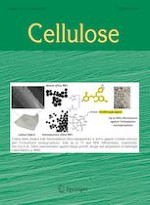01-09-2022 | Original Research
Cellulose-based functional polycarbonates as degradable enzyme carriers
Published in: Cellulose | Issue 16/2022
Log inActivate our intelligent search to find suitable subject content or patents.
Select sections of text to find matching patents with Artificial Intelligence. powered by
Select sections of text to find additional relevant content using AI-assisted search. powered by
